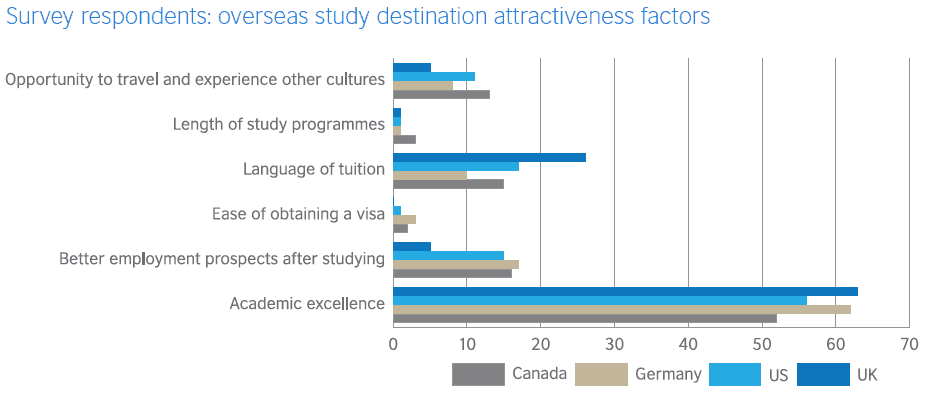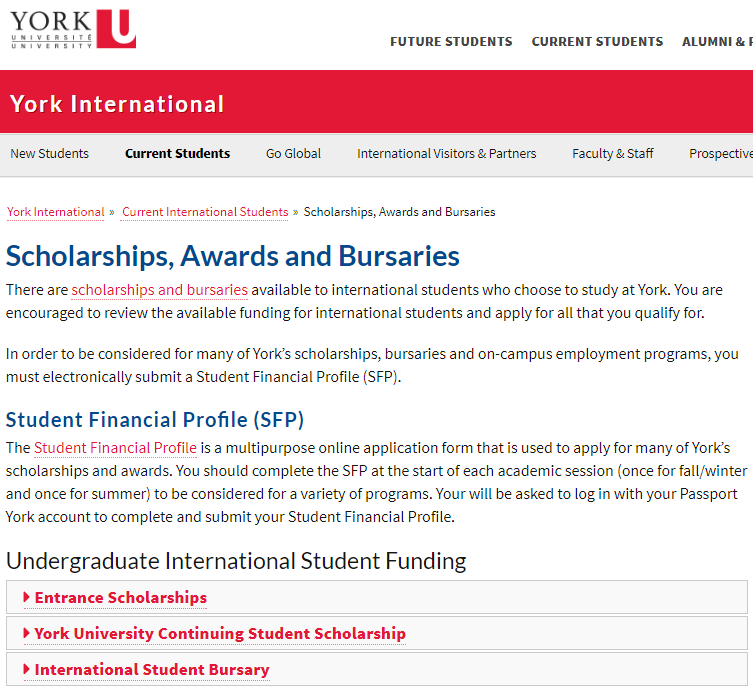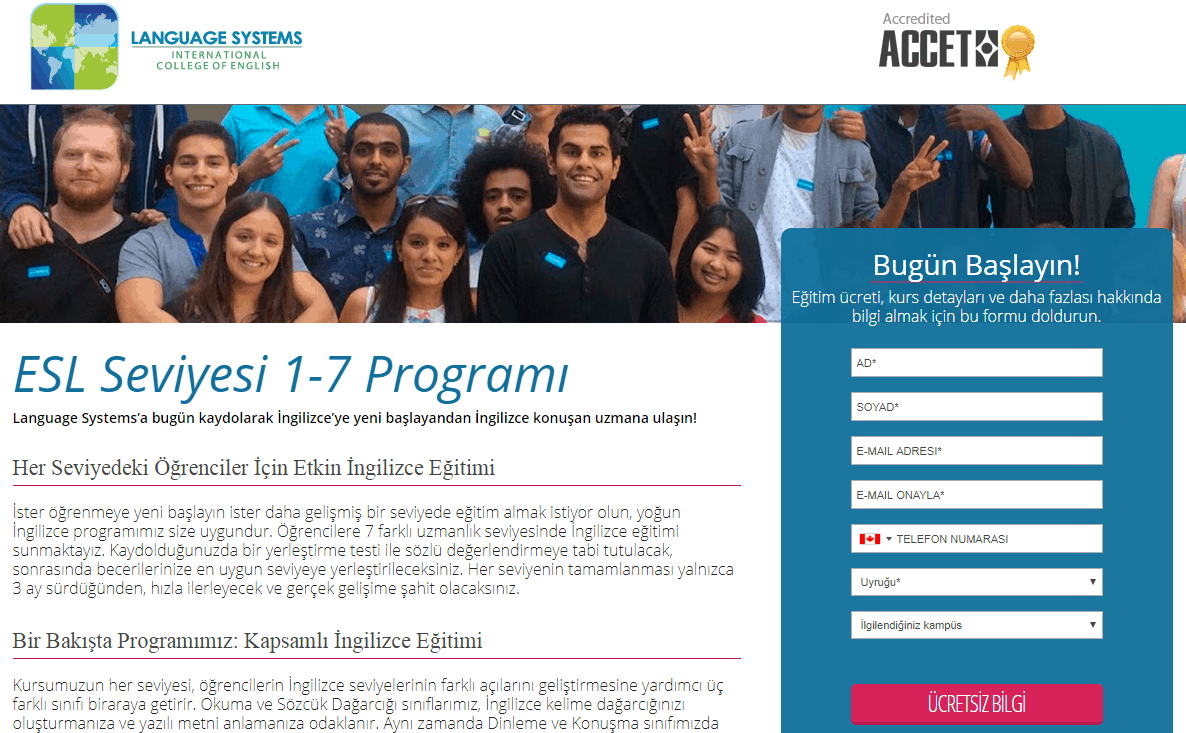
With one of the fastest growing economies in the entire world, it’s no wonder the investment firm Fidelity has ranked Turkey as one of the four MINT countries, along with Mexico, Indonesia, and Nigeria. As the economy flourishes and the middle class continues to grow, the country will need educated and talented young people to contribute to its development, and tertiary education will become more financially feasible for many families.
This pressing need, coupled with the country’s limited number of domestic higher education spots, has made Turkey an international student recruitment market worthy of serious consideration. With an estimated 80 to 100,000 Turkish students already going abroad for studies every year, if you’ve never considered Turkey as a focal point for your international student recruitment efforts, it may be time to start.
A Snapshot of the Current State of Education in Turkey
In order to understand what makes Turkey a promising up-and-coming source market for international student recruitment, it’s important to look at the current education landscape in the country. According to the CIA, Turkey has an estimated population that exceeds 80.2 million people, about 16% of which are between the ages of 15 to 24, and 43% are between 25 and 54.
The boom of eager young people has created a huge demand for tertiary education. In response to the increasing need, the Turkish government has worked to expand its education offerings, and as of 2017, there are 190 public and private universities in the country.
Despite the increasing number of universities available, competition is still fierce. The Turkish higher education system uses a standardized test and admits students based on their scores. For acceptance to the 2015 academic year, over two million hopeful students took the YGS Higher Education Entrance Exam, and a mere 351,000 were accepted to undergraduate studies. The sheer competitiveness of achieving a coveted spot makes entry into prestigious programs like engineering and medicine almost impossible without near-perfect grades.
Despite the already limited number of spots, the Turkish government is committed to expanding inbound international student recruitment in the country, limiting the options for native Turks even further. Thus, many Turkish people see going abroad as one of their only routes into higher education.
Why Recruit Students from Turkey?
With the 17th largest economy in the world and a growing middle class, Turkey is certainly not a country to dismiss for international student recruitment, especially since young people are hungry for education opportunities that will improve their employment prospects.
A 2013 study conducted by the British Council, The Importance of International Education: A Perspective from Turkish students, surveyed 4,816 Turks on their educational aspirations and opinions about studying abroad. The study highlighted just how strong the desire to pursue studies abroad was among Turkish students, with some of the most notable findings being:
- 95% of all respondents would like to study overseas
- 96% believe studying overseas will provide a better path to secure future employment
- 32% believe the biggest benefit of studying abroad is better education opportunities
These numbers make it clear that when recruiting international students from Turkey, it’s not about convincing them that studying abroad is a good idea; it’s about helping them see that it’s a feasible and realistic option, since 86% responded that cost was the most significant obstacle to overcome.
Top Destinations of Choice for Turkish International Students
When it comes to studying internationally, it’s clear that Turkish students have their preferences. According to the British Council’s study, the UK, USA, Germany, and Canada are all frontrunners for where Turkish students would ideally like to study abroad.

Source: The British Council
However, according to UNESCO Institute for Statistics, actual data regarding where Turkish students are currently studying varies from the aspirations of the survey respondents. In reality, the USA has the largest number of Turkish students, far exceeding any of its counterparts, and is followed by strictly European destinations, including Germany, Bulgaria, the UK, and Austria.

Source: Institute for Statistics
Turkey’s close proximity to the rest of Europe may account for the difference between desired international study destinations and the actual figures. As Turkish students narrow down their options, it may seem more convenient and financially feasible to stay in Europe. In addition, Germany’s popularity may be attributed to the significant strides the country has taken to increase international student enrolment with free or extremely low-cost tuition. Nonetheless, schools in countries like Canada should be aware that there is untapped potential in this market.
The British Council’s study also revealed some interesting insights into what prospective Turkish students find particularly attractive about international study destinations. As seen in the bar chart below, the UK and Germany are both leaders in perceived academic excellence, and Canada and Germany lead the pack for improved employment prospects.

Source: The British Council
Armed with this information, schools can work to fill the gaps between Turkish people’s perception of their country compared to the reality. For example, a school located in the UK could overcome the survey respondents’ perception of limited cultural and travel opportunities by producing content for internationals students like blogs or social media posts that highlight local cultural attractions in the area.
Study Preferences of Turkish Students
There’s a clear trend in what Turkish students are studying and it is directly related to where they see opportunities for employment. Participants in the British Council’s study rank engineering as the top opportunity for future employment, followed by health/medicine, information technology, digital media, and e-marketing.

Source: The British Council
It should come as no surprise that 24% of Turkish students in the USA are studying engineering, followed by 14% enrolled in physical or life sciences, nearly 14% in business/management studies, and 9.7% in computer science, according to the most recent IIE figures.
Many of the above numbers correspond with what participants ranked as the top opportunities for employment, which further demonstrates how Turkish students are taking matters into their own hands by looking abroad for educational opportunities that are unavailable at home.
When it comes to the level of studies, most Turkish students in the USA are earning a Master’s Degree. This may be attributed to the fact that one quarter of university graduates in Turkey are unemployed. Thus, students already armed with an Undergraduate Degree may be travelling abroad to earn more credentials in order to hopefully secure a good career.
Opportunities for Language Schools to Recruit Students from Turkey
It’s also important to consider the many Turkish students who go abroad each year for English language studies.
According to Turkish agency association UED, 80% of students that they refer abroad are studying English, many of them ending up in the UK, where about half of all international students from Turkey are taking English classes. Australia is another popular destination for learning English; of all the Turkish international students in the country in 2013, 64% were completing English Language Intensive Courses for Overseas Students (ELICOS).
The country also has an extremely low English proficiency ranking of 51 out of 72 countries, and is second to last in English proficiency in Europe. Many Turks cite the cost of English lessons as the main barrier to taking them in Turkey. In addition, while some schools integrate English lessons into the curriculum, it’s more common in upper-class private schools.
The lack of English capabilities and the desire to receive an education that improves employability presents a unique opportunity for language schools. Pathway programs that allow students conditional acceptance to university upon completion of language courses could be just the ticket for Turkish prospective students.
Example: CultureWorks, a language school in Canada, has partnerships with several nearby universities allowing students to take advantage of conditional acceptance to their desired program and school upon successful completion of the English program.

Developing Key Messages for Recruiting International Students in Turkey
What does all this information mean for your school? In order to effectively target Turkish prospective students, it’s essential to recognize the patterns and trends in data and statistics, and use them to form key messages that speak to the unique needs, motivations, and concerns of Turkish students.
To recap, here are the key insights that can help to guide your messaging for Turkish prospective students:
- Turkish prospective students have restricted education options in their home country, especially if they don’t receive top grades.
- Turkish prospective students believe an international education is a route to secure employment, and they are open and willing to study internationally
- Turkish prospective students see cost as the biggest barrier to studying abroad
- There’s a distinct trend in the subjects Turkish students like to study, Engineering being a top option
- Turkish students make education decisions based on practicality
- In the USA, most Turkish students study at Master’s level
When it comes to using digital channels to communicate with and recruit students from Turkey, conveying the right message is the key. With the above points in mind, you can better frame your communications to address potential barriers to enrolment head on.
Discussing your school’s financial aid options, for instance, is a great way to help potential Turkish applicants see that they can afford to study with you.
Example: York University in Toronto, Canada includes information about scholarships, awards, and bursaries on the International Students section of its website.

Since many Turkish applicants are concerned with improving their chances of finding secure employment after graduation, any information you can provide that demonstrates how they may find success will also be helpful when recruiting international students in Turkey.
There are several ways you can do this. Testimonials from previous Turkish graduates are a great option, providing an inside look at a fellow Turk’s experience at your school and their career success story after graduation. You might also want to consider designating Turkish student ambassadors who are willing to correspond with prospects about their experience on campus, and how they feel it’s contributing to their future success.
In addition, due to the low English proficiency rate across the country, if you’re promoting a language school or program, it might be ideal to opt for a multilingual paid advertising campaign with a Turkish landing page in order to communicate what your school can offer more effectively.
Example: Language Systems International College of English promotes its language training in Turkish on a customized landing page.

Reaching prospective students in Turkey through social media is also a viable option. However, it’s important to keep in mind that internet censorship is common in Turkey. Approximately 7,000 websites are currently banned across the country, and it’s not uncommon for social media sites like Twitter to go dark for hours at a time. In fact, Turkey has more censorship on Twitter than any other country. To counteract this, make sure it’s easy for students to contact you through different online mediums, such as via an email address or lead generation form on your website.
Due to the extremely limited number of spots in post-secondary programs in Turkey, it’s a fantastic market for language schools and universities and colleges alike. Turkish students are eager for more education options that will help them secure a better future and promising career, and they are already open to the idea of studying internationally.
This presents a valuable opportunity for schools looking to expand their international student recruitment efforts. While markets like China and India remain hot, smaller markets like Turkey can be an excellent source of quality applicants, especially for schools offering ESL programs as well as universities specializing in areas like Engineering and Business, which are highly sought after by Turkish students.






